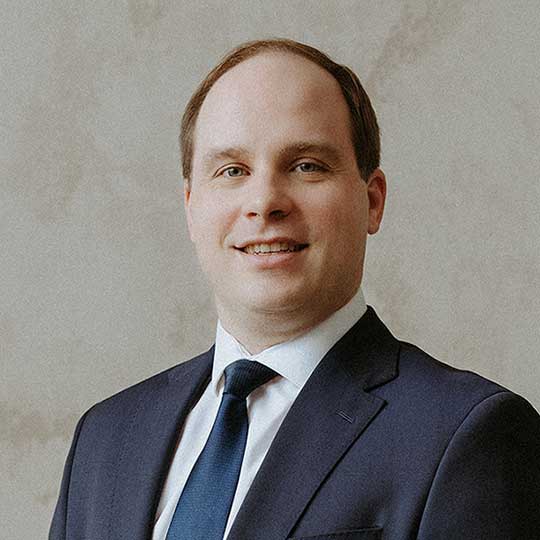Apr 18, 2025 in News Legal News
Legal News: What the 2025 Cost Convention Means for Injury Victims in Ontario

For plaintiffs pursuing compensation in personal injury claims, legal costs can significantly impact outcomes. That’s why it’s important to understand how the recently introduced 2025 Cost Convention may affect your case. These updates aim to clarify how legal expenses are awarded and recovered, especially in situations involving contingency fees or complex litigation.
While the convention isn’t a legislative change, it represents a meaningful shift in how lawyers and judges across Ontario are approaching cost-related issues. Whether you’re seeking justice for a serious injury or supporting a loved one through their recovery, knowing how this framework works is a step toward protecting your financial interests.
What Is the 2025 Cost Convention?
The 2025 Cost Convention is a set of standardized practices adopted by Ontario’s legal community to promote greater clarity and fairness in awarding costs after civil litigation—particularly in personal injury and Long-Term Disability Claims in Ontario. Created with input from courts, lawyers, and legal organizations like the Ontario Trial Lawyers Association, the convention encourages consistency in how costs are determined across different types of cases.
This guidance is not binding law, but it provides a framework that helps courts assess legal costs more predictably. It reflects an effort to streamline disputes over fees and ensure that both plaintiffs and defendants are treated fairly, especially when it comes to cost recovery after trial or settlement.
Read More - The Ultimate Guide to Long-Term Disability Claims in Ontario
Why Legal Costs Matter in Personal Injury Claims
Legal costs can play a major role in the total value of your personal injury compensation. In Ontario, the general rule is that the losing party pays a portion of the winning side’s legal fees. These cost awards can help offset what you owe your lawyer—especially if you’re working under a contingency fee arrangement, where fees are deducted from your final compensation.
This is particularly important in complex or high-value claims, where litigation may take months or even years. With the 2025 Cost Convention in place, courts are expected to follow clearer guidelines when deciding how much to award and under what circumstances.
If your case is being handled by Personal injury lawyers in Toronto, you should speak with them about how cost recovery could apply in your situation and what strategic decisions could influence the final outcome.
Key Themes of the 2025 Cost Convention
Here are some of the core ideas introduced in the Convention and why they matter to injury victims:
1. Greater Cost Transparency
The Convention emphasizes full disclosure of how legal fees will be calculated, especially in contingency-based arrangements. This allows plaintiffs to understand what they may owe—win or lose—and helps prevent disputes over unexpected deductions from a settlement.
2. Clarity on Proportionality
Courts will assess whether the legal costs incurred were reasonable and proportionate to the value of the claim. This is especially relevant in smaller claims, where high legal fees may not be justified relative to the potential recovery.
3. Incentivizing Fair Settlement Offers
The Convention encourages parties to make and consider reasonable settlement offers. If a party refuses a fair offer and later loses in court or receives a less favourable judgment, they may face cost consequences. This approach rewards cooperation and discourages unnecessary litigation.
4. Enhanced Consideration of Access to Justice
The Convention recognizes that plaintiffs—particularly in personal injury cases—often face financial and emotional stress. Courts may take this into account when deciding cost awards, reinforcing the importance of making the justice system accessible and equitable.
How This Affects Injured Plaintiffs
For plaintiffs and their families, understanding the 2025 Cost Convention helps ensure that your expectations are aligned with how the legal system works today.
- If you’re considering settlement, the convention supports reasonable negotiations and can influence whether it’s financially worth taking a case to trial.
- If you’re relying on a contingency fee agreement, transparency in cost-sharing becomes even more important, as courts will now have a clearer roadmap for reviewing how those fees are applied.
- If your case is more complex—such as in Pedestrian Accidents in Toronto: Legal Rights & Compensation—you may need a lawyer who understands how to document your file thoroughly, protect your interests, and advocate for fair cost recovery at every stage of litigation.
Is the Cost Convention Legally Binding?
Not quite. The Convention does not override existing laws or court rules, but it does carry weight. It reflects how Ontario’s courts are evolving in practice, and it helps lawyers and judges apply cost principles more consistently.
Legal professionals are already incorporating these guidelines into their arguments and submissions. That means your legal team may rely on the Convention to support a cost claim or to push back against an unreasonable demand from the opposing side.
For example, Neinstein Personal Injury Lawyers already structure their legal strategies with these developments in mind—ensuring that clients are positioned to recover not only compensation for their injuries but also appropriate legal costs where possible.
Final Thoughts
Navigating a personal injury claim is never just about the facts—it’s also about understanding the systems and rules that determine outcomes. The 2025 Cost Convention represents a significant step toward making legal costs more predictable, fair, and transparent for everyone involved.
If you’ve been injured and are considering a claim, speak to a lawyer who’s up to date with the latest developments and can guide you through your options. Whether your case ends in settlement or goes to court, the right legal advice can help you protect your rights—and your recovery.
Category Selector
Select a category relevant to you.
- Social Host Liability
- Tort
- Spinal Injury
- Road Safety
- Slip and Fall Claims
- Snowmobile Accident
- Product Liability
- Rail Accidents
- Recalls
- News
- Nursing Home Negligence
- Personal Injury
- Physical and Psychological Injuries
- Negligent Supervision
- Neinstein in the Community
- Medical Malpractice
- Motorcycle Accidents
- Long Term Disability
- Chronic Pain
- COVID-19
- Dog Bites Claims
- Events
- General
- Homeowner Liability
- JUUL & Vaping
- JUUL Vaping Lawsuit
- Lawyer Profile
- Legal News
- Legal Representation
- Liability
- Long-term Care
- Blogs
- Boating Accident
- Brain Injury
- Car Accident
- Accident Benefits Claims
- Auto Insurance
- Bicycle Accidents
- Water Accidents
- Wrongful Death
- In the Community
Area of Expertise
Personal injury
Personal injury claims come in all shapes and sizes. Our practice has represented clients seeking compensation from individuals, small businesses, corporate entities, medical professionals and facilities, and insurance providers. This diverse experience has made us one of Ontario’s most reputable and trusted personal injury law firms. If you or a member of your family has been catastrophically injured, contact a Neinstein personal injury attorney to discuss your legal options.
More Posts Legal SupportBook A Free Consultation
We will not charge you unless your case is successful.
At Neinstein we have been advocating for injured victims for over 55 years. Our committed and compassionate team will do everything necessary to help you and your family find solutions to the new challenges that arise from serious injuries.
Our team will ensure you access the proper healthcare support to aid in your recovery. While you focus on your rehabilitation, we will thoroughly investigate your case and guide you through the litigation process so we can achieve the maximum compensation that you deserve.

